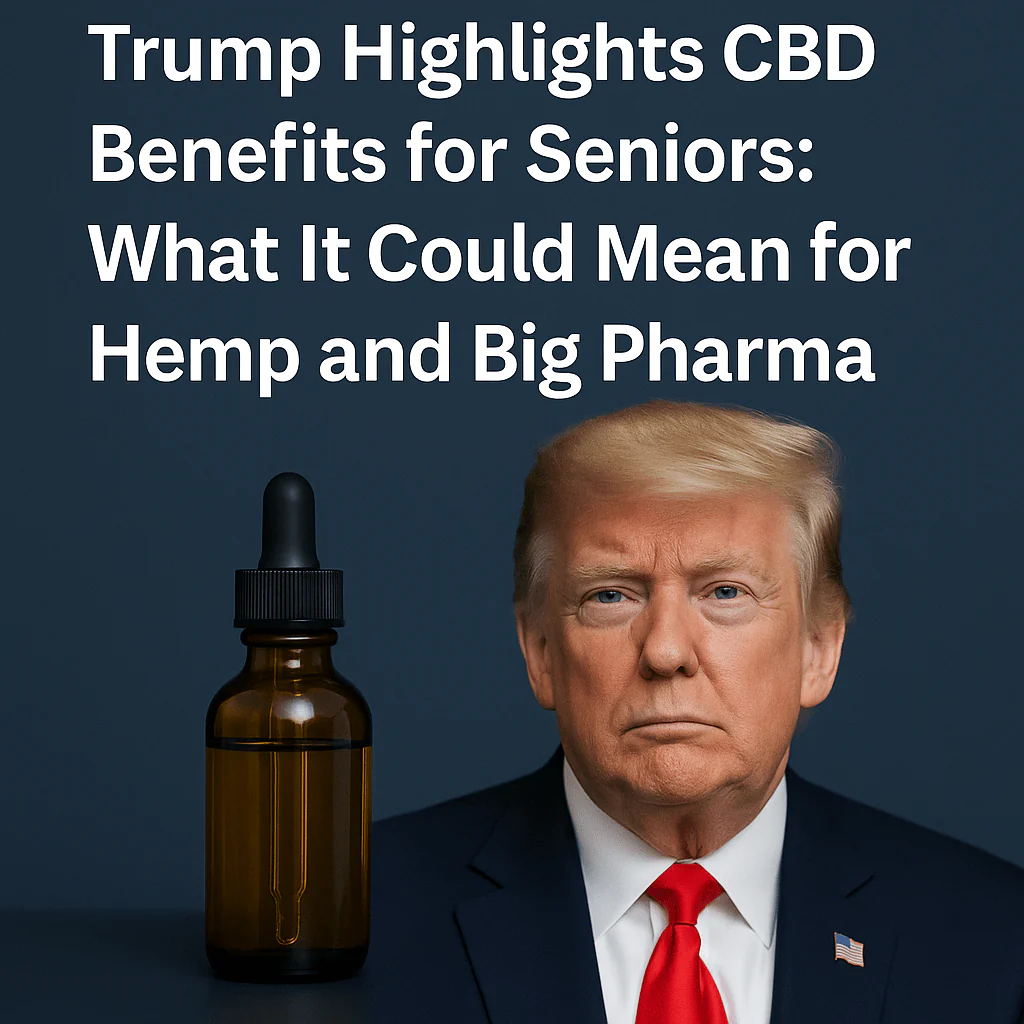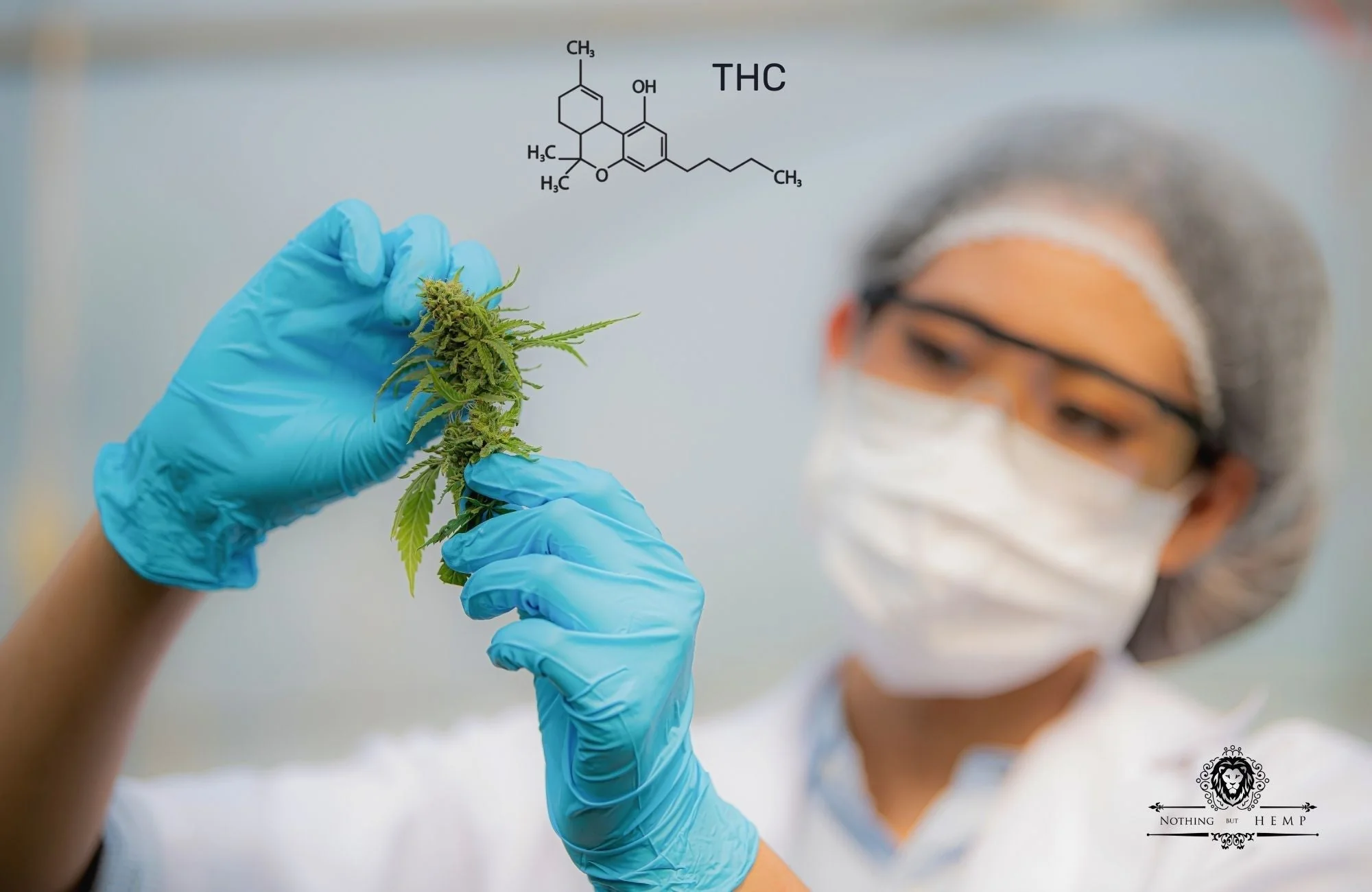Weekly Meeting: DC Fly-In, Legislative Strategy, and State Initiatives
Introduction: A First Look Inside
This week I attended my first meeting with the Hemp Industry & Farmers of America (HIFA), a national association representing hemp interests in Washington, D.C. For years I’ve watched the industry swirl with rumors, false alarms, and competing narratives. But this meeting cut through the noise.
The conversation went straight to the point: there is no federal hemp ban taking effect in the next 48–72 hours. That rumor, which spread like wildfire across the hemp world, was debunked directly by lobbyists with access to congressional leadership.
But the relief was short-lived, because the real message was clear: while there is no ban right now, there is absolutely the potential for one. And if our industry doesn’t get ahead of it, we risk having our future written for us by prohibitionists and corporate interests.
⸻
The Reality in DC: No Ban Now, But the Potential is Real
The U.S. House of Representatives is in recess. The Senate remains locked in a stalemate over spending levels and hasn’t even named conferees for appropriations. In that vacuum, rumors thrive.
The supposed 48-hour hemp ban? Pure fiction.
After the lobbyist reached out directly to congressional leadership, the answer came back loud and clear: there is no such ban right now. Leadership staff even laughed at the idea.
That should have ended the panic. But it didn’t, because the bigger truth remains: Congress doesn’t need weeks of debate to strip hemp from the shelves. All it takes is one amendment slipped into an appropriations bill at the eleventh hour, and the livelihoods of farmers, brands, and retailers could be erased overnight.
The rumor wasn’t true this time—but it revealed just how vulnerable we really are.
⸻
Senator McConnell and the Nationwide Threat
Kentucky’s farmers are living this threat in real time. Just days ago, they wrote directly to Senator Mitch McConnell, urging him not to criminalize their harvest. McConnell, once hailed as the father of hemp legalization in the 2018 Farm Bill, now sits at the center of efforts that could undo that progress.
This isn’t just a Kentucky fight. McConnell isn’t a backbencher—he’s one of the most powerful lawmakers in the nation. His influence stretches across the entire federal process. If he moves to restrict hemp, it won’t just be Kentucky’s farmers who pay the price. Minnesota’s licensed hemp market, Texas’s evolving framework, Florida’s beverage operators—everyone will feel the impact.
McConnell’s involvement makes this a nationwide issue, and a wake-up call for anyone who still thinks hemp bans are a “state problem.”
⸻
Lessons from Prohibition: History Repeats Itself
When people hear “Prohibition,” they often think of it as a short blip in history—alcohol was banned, then legalized again. But the truth is much deeper, and the parallels to hemp are chilling.
The Rise of Prohibition
In the early 1900s, the temperance movement gained momentum across America. Groups like the Anti-Saloon League and the Women’s Christian Temperance Union framed alcohol as a moral and social evil. By 1920, their lobbying succeeded with the 18th Amendment and the Volstead Act, outlawing the manufacture, sale, and transportation of intoxicating liquors.
Prohibitionists declared victory. But they had no idea what forces they had just unleashed.
The Black Market Boom
Almost immediately, Prohibition created a thriving underground economy.
• Speakeasies popped up in every city, hidden bars where alcohol flowed freely with police and politicians often on the take.
• Bootleggers and smugglers made fortunes running liquor across borders, from Canada to the Caribbean.
• Organized crime syndicates like Al Capone’s Chicago Outfit built empires on illegal alcohol, fueling corruption and violence on a scale never seen before.
Instead of eliminating alcohol consumption, Prohibition drove it underground—and made it more dangerous. Drinks were unregulated, often toxic, and sometimes lethal. Consumers lost safety. Governments lost control. Communities lost trust.
Sound familiar? Every attempt to ban hemp-derived cannabinoids today risks the same outcome: black markets, unsafe products, and lost legitimacy.
Economic Collapse and Lost Revenue
Before Prohibition, alcohol taxes accounted for as much as 40% of federal revenue. That money vanished overnight.
At the same time, tens of thousands of jobs in brewing, distilling, distribution, and hospitality disappeared. Farmers who grew corn, barley, and grapes lost their buyers. Towns built around breweries and distilleries collapsed.
The irony? This happened just as the Great Depression arrived. America desperately needed jobs and revenue—but Prohibition had killed them.
The same risk looms over hemp. The industry supports hundreds of thousands of jobs nationwide and generates tax revenue in dozens of states. A federal ban wouldn’t erase demand—it would just destroy legitimate jobs and send consumers underground.
The Road to Repeal
By the 1930s, the futility of Prohibition was undeniable. Crime was up. Tax revenue was gone. Jobs had vanished. And ordinary Americans kept drinking anyway.
A coalition formed: farmers, business owners, consumers, and governments desperate for revenue. Groups like the Association Against the Prohibition Amendment lobbied relentlessly, uniting under a single message: Prohibition had failed.
Finally, in 1933, the 21st Amendment repealed Prohibition. Alcohol was legal again—but under a patchwork of state rules. Some states allowed open sales. Others created state-run liquor boards. A few stayed dry for decades.
Repeal was messy. But it was inevitable, because Prohibition had collapsed under its own weight.
Lessons for Hemp
The parallels are undeniable:
• Moral panic fueled Prohibition. Today, it fuels hemp bans.
• Black markets flourished under Prohibition. They will if hemp is banned.
• Revenue vanished under Prohibition. Hemp bans would do the same.
• Repeal required unity across all stakeholders. Hemp must learn this lesson.
But there’s a final warning: when Prohibition ended, the best-organized players—big brewers and distillers—secured favorable rules. Small producers who hadn’t united were left behind.
If hemp stays fractured, the same fate awaits.
⸻
What Responsible Hemp Leadership Looks Like
The path forward isn’t “no regulation.” It’s responsible regulation.
Companies like Nothing But Hemp have been clear:
1. 21+ Restrictions: Hemp products must be for adults only.
2. Safe Packaging & Testing: Child-resistant packaging, clear labels, and rigorous third-party testing should be non-negotiable. Consumers deserve to know exactly what’s in their products—verified cannabinoid levels, safety results, and transparent reporting.
3. State-Based Regulation: States should control local hemp laws, just as they do alcohol. Local control matters.
4. Interstate Commerce: Farmers and businesses must be able to sell across state lines to survive.
This framework balances consumer safety with economic growth. It ensures trust, consistency, and accountability. It’s not prohibition. It’s responsibility.
⸻
Division in the Ranks: The “BevBros” and Splinter Groups
Here’s the danger: even as hemp faces an external threat, internal division could finish us first.
The “BevBros”—beverage operators who act like they’re above the rest of hemp—are part of the problem. They whisper to lawmakers, “We’re different. We’re not like gummies or vapes.” They push for carve-outs that they think will save them.
But Congress doesn’t see categories. It sees hemp. And when BevBros carve themselves out, they weaken the whole movement. They could screw it up for everyone.
Then there are newbie trade groups like HBA and CABA. They appear overnight, run by people with little history in the hemp fight. Instead of unifying, they confuse lawmakers with contradictory messages. In some cases, they back harmful regulations just to protect their niche.
This segmentation is poison. Lawmakers already struggle to understand hemp. If they hear three different stories, they see chaos. And chaos makes prohibition easy.
The truth is simple: if you’re selling psychoactive cannabinoids or non-psychoactive cannabinoids, we all need to be under the same roof.
A Message to the BevBros
Stop and think. Look at history. You won’t make it without us. You won’t have hemp farmers. You won’t have processors. You won’t have the retailers who built this industry before beverages ever hit the shelves.
Your messaging needs to change. Because if you keep pushing division, you’re not just risking your own future—you’re risking ours. And history shows us one thing: divided industries don’t survive.
⸻
Dead Weight vs. Fighters
Here’s what I took from my first HIFA meeting: if you’re in hemp and not fighting, you’re dead weight.
Yes, leaders like me now have access to the conversations in DC. But access alone won’t save hemp.
It takes all of us:
• Growers, who put seeds in the ground.
• Manufacturers, who turn crops into products.
• Retailers, who bring hemp to communities.
• Consumers, who demand safe, legal choices.
If you sit back and wait for others to do the work, don’t be surprised when your business is erased.
⸻
Closing: A Call to Action
The hemp industry stands at the same crossroads alcohol faced at the end of Prohibition.
The 48-hour ban rumor was false. But the potential ban is real. And Senator McConnell’s fingerprints prove this is not a state fight—it’s a national one.
The responsible framework is clear: 21+, safe packaging, testing, state regulation, and interstate commerce. That’s how we protect consumers, keep jobs, and sustain growth.
But this fight won’t be won by insiders alone. It won’t be won if BevBros carve out, if HBA and CABA confuse, or if businesses sit back.
Just look at Kentucky. Farmers begging their own senator not to criminalize their crops is not a local story—it’s a warning for the entire nation.
So here’s the message I’m bringing back: get involved. Add your voice. Protect your future.
Because if you choose silence, don’t be surprised when your business disappears.
It takes a village—growers, retailers, brands, multistore operators, manufacturers, and consumers—standing as one.
The weeks ahead are critical. The threat is real. And if we don’t fight now, prohibition—modernized and federalized—will write hemp out of the story.








































